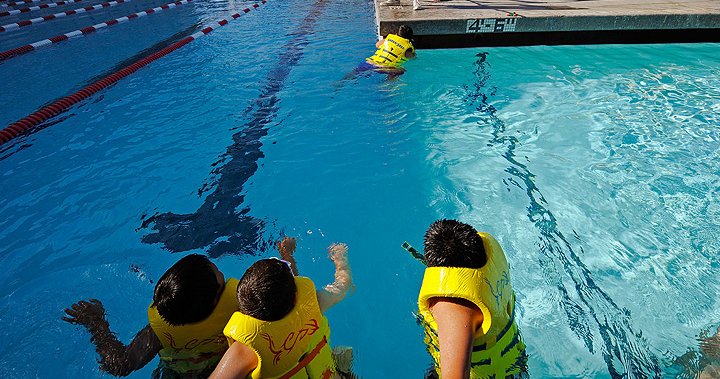Should swimming lessons be mandatory for kids in B.C.?
Questions around water safety are back in the spotlight following a pair of recent drownings, one at Lynn Canyon in North Vancouver and another in Kelowna.
“We are blessed to be around a lot of beautiful open water in B.C. — our rivers, lakes and oceans are inviting for all people — so teaching people how to swim at a young age is going to give them those skills to be safe around our beautiful waterways,” said Kimiko Hirakida, director of programs and services for the BC and Yukon Life-Saving Society.
“Even one drowning a year is too many. We would love to see our drowning numbers at zero.”
According to the BC Coroners Service, there were 101 accidental drownings in the province in 2023, with numbers peaking during the summer months. July was the deadliest month last year, with 18 lives lost.
The latest health and medical news
emailed to you every Sunday.
Most deaths occurred near rivers, creeks, lakes and ponds, and almost one in five deaths involved someone who was boating.
Hirakida’s organization has long supported including mandatory swimming lessons in the province’s school curriculum.
“Grade 3 is a great age to get that,” she said.
“Not only are our swim lessons teaching you how to swim, they are teaching rescue skills as well as water-smart behaviours on how to keep you and other people safe.”
The idea is not new. A number of B.C. school districts once offered swimming lessons. Some still incorporate swimming into the school system, like in northern B.C. where high school students can earn credits by completing lifeguard training.
On Vancouver Island, students in Sooke have received free swimming lessons through a partnership with the Lions Club for two decades.
“We think it is very important in a seaside community that the kids know how to be safe in the water,” Sooke Lions Club president Danny Willis told Global News.
The program sees the Lions Club take on the logistics and expenses, about $13,000 per year, of transporting all of the community’s Grade 2 students to a local pool for lessons.
“When we talk to the teachers, they tell us it builds confidence in the kids … so it’s about more than just swimming,” Willis said.
In the Lower Mainland, the Lifesaving Society said implementing the concept would require a partnership between local school districts and municipal governments.
The details of scheduling, staffing and transportation would no doubt be complex and require major planning.
But Willis said it can be done.
“If we can do it, why can’t the others?” he said.
“It costs a lot of money, and it takes a lot of planning, but if it saves one life, it’s worth it.”
© 2024 Global News, a division of Corus Entertainment Inc.



